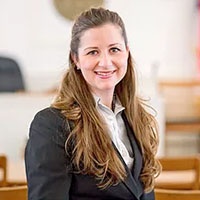CHILD SUPPORT
The entitlement of all children to be supported by their parents until the children reach the age of majority or become emancipated -- usually by marriage, by e...
(more...)The entitlement of all children to be supported by their parents until the children reach the age of majority or become emancipated -- usually by marriage, by entry into the armed forces or by living independently. Many states also impose child support obligations on parents for a year or two beyond this point if the child is a full-time student. If the parents are living separately, they each must still support the children. Typically, the parent who has custody meets his or her support obligation through taking care of the child every day, while the other parent must make payments to the custodial parent on behalf of the child -- usually cash but sometimes other kinds of contributions. When parents divorce, the court almost always orders the non-custodial parent to pay the custodial parent an amount of child support fixed by state law. Sometimes, however, if the parents share physical custody more or less equally, the court will order the higher-income parent to make payments to the lower-income parent.


